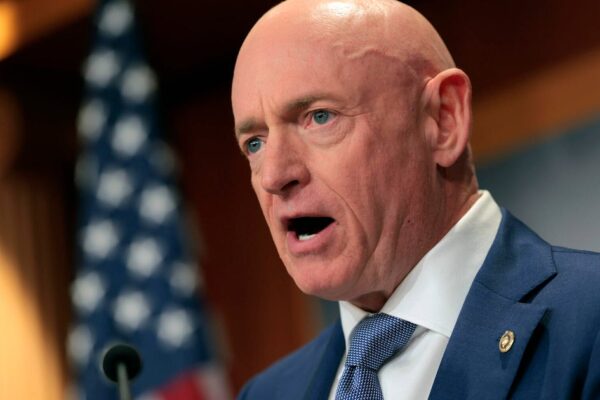
Vitamin D3 treatment may cut risk of second heart attack in half
A new study from Intermountain Health in Salt Lake City has found that a personalized approach to vitamin D3 supplementation can make a significant difference for people recovering from a heart attack. Researchers discovered that carefully monitoring and adjusting patients’ vitamin D3 levels could reduce their chances of having another heart attack by half. The findings were presented at the 2025 American Heart Association Scientific Sessions in New Orleans.
Vitamin D, often called the “sunshine vitamin,” is essential not only for bone and immune health but also plays an important role in heart health. Low levels of vitamin D have been linked to a higher risk of heart disease. However, past studies testing vitamin D supplements didn’t show clear benefits for preventing heart attacks. This inconsistency led scientists to wonder whether the issue wasn’t the vitamin itself, but rather how it was administered.
In this new trial, known as the TARGET-D study, researchers took a different approach. Instead of giving all patients the same supplement dose, they used a “target-to-treat” method. This meant that each patient’s blood levels of vitamin D were tested regularly, and their vitamin D3 dosage was adjusted until it reached what researchers considered an optimal level—above 40 nanograms per milliliter (ng/mL).
By personalizing the treatment, the researchers aimed to discover whether reaching this target level, rather than simply taking supplements, could lower the risk of another heart attack.
### Study Design and Participants
The study followed 630 patients who had suffered a heart attack within the previous month. Participants were randomly assigned to one of two groups: one received standard care with no vitamin D management, while the other received personalized vitamin D3 treatment.
Most patients—about 85%—started the study with low vitamin D levels, below 40 ng/mL. To reach the desired level, many needed higher doses of vitamin D3 than typically recommended. Over half the patients in the targeted treatment group required an initial dose of 5,000 international units (IU) per day, much higher than the standard recommendation of 600 to 800 IU.
### Monitoring and Results
Patients in the study had their vitamin D levels checked regularly. Those who reached healthy levels were monitored yearly, while those who remained low were checked every three months, with doses adjusted as needed.
Researchers then tracked all participants for several years to see who went on to experience additional heart-related events such as another heart attack, heart failure, stroke, or death. In total, 107 of the 630 patients experienced a major cardiac event during the follow-up period.
While the overall rate of major events was similar between the two groups, the difference in second heart attacks was dramatic. Patients who received the personalized vitamin D treatment were about 50% less likely to suffer another heart attack compared to those who did not receive targeted vitamin D management.
### Expert Insights
Dr. Heidi May, a cardiovascular epidemiologist at Intermountain Health and the study’s lead author, described the results as encouraging. “We observed no negative side effects from giving patients higher doses of vitamin D3, and to see such a strong reduction in repeat heart attacks is very promising,” she said.
However, Dr. May also emphasized that larger trials are needed to confirm the findings and better understand how this approach might prevent other heart problems.
### Importance of Vitamin D Deficiency
These findings are especially relevant given how common vitamin D deficiency is worldwide. Experts estimate that up to two-thirds of people have low levels of the vitamin, partly due to reduced sun exposure resulting from lifestyle changes and skin cancer prevention advice.
For individuals with low vitamin D, supplementation may be an important way to restore healthy levels and protect long-term heart health.
### What This Means for Heart Attack Survivors
Reviewing the study, the results suggest that a one-size-fits-all approach may not be the best strategy for using vitamin D to protect the heart. By carefully tracking blood levels and adjusting doses, doctors could help patients achieve optimal vitamin D levels and reduce their risk of another heart attack.
Still, researchers caution that more data is needed before vitamin D testing and high-dose supplementation become routine parts of post-heart-attack care. If confirmed by larger studies, this simple and low-cost strategy could provide an easy way to help heart attack survivors live longer, healthier lives.
### Final Thoughts
For now, this study adds to growing evidence that maintaining good vitamin D levels isn’t just important for bones—it may also be vital for heart health.
If you’re interested in nutrition, consider reading studies showing that vitamin D can help reduce inflammation, and that vitamin K may lower your heart disease risk by up to a third.
For more health information, explore recent research about foods that could sharpen your brain, and findings that certain cooking methods might increase your risk of vision problems.
—
*Disclaimer: This article is for informational purposes only and does not substitute professional medical advice. Always consult your healthcare provider before starting any new supplement regimen.*
https://knowridge.com/2025/11/vitamin-d3-treatment-may-cut-risk-of-second-heart-attack-in-half/
You may also like
相关资源
You may be interested
Globe bets on prepaid fiber, sets expansion
No content was provided to convert. Please provide the text...
Bragging rights up as Samal makes 5150 debut
A stellar Open division field will be shooting for the...
DigiPlus launches P1-M surety bond program
MANILA, Philippines — DigiPlus Interactive Corp. has partnered with Philippine...
 The New York Times
The New York Times
- The Coming Iranian Revolution 2026 年 3 月 3 日 Abbas Milani
- As Trump Scrambles the World Order, Can Germany Learn the Language of Hard Power? 2026 年 3 月 3 日 Elisabeth Zerofsky
- ‘Pray We Make It Through the Night’: Iran’s Capital Under Siege 2026 年 3 月 3 日 Farnaz Fassihi and Arash Khamooshi
- When Trump Meets Germany’s Merz, Iran Will Likely Dominate Discussion 2026 年 3 月 3 日 Jim Tankersley
- In Republican Win, Supreme Court Retains G.O.P. District in New York 2026 年 3 月 3 日 Abbie VanSickle and Grace Ashford
- Seven Takeaways From the Clintons’ Epstein Depositions 2026 年 3 月 3 日 Annie Karni and Michael Gold
- OpenAI Amends A.I. Deal With the Pentagon 2026 年 3 月 3 日 Cade Metz and Julian E. Barnes
- Under Pressure from Trump, Cuban Leader Calls for ‘Urgent’ Economic Change 2026 年 3 月 3 日 Luis Ferré-Sadurní and David C. Adams
- U.S. Sends More Troops to the Mideast as Iran War Expands 2026 年 3 月 3 日 Helene Cooper and Eric Schmitt
- Supreme Court Sides With Religious Parents, Blocking California’s Trans Student Policy 2026 年 3 月 3 日 Ann E. Marimow



Leave a Reply